The development of new technologies and changing healthcare reforms have made revenue cycle management (RCM) more difficult for the healthcare sector. Patient expectations, rising healthcare costs, electronic health record (EHR) integration, and healthcare regulations encompass some of the challenges facing healthcare providers. There are opportunities to enhance the patient experience and generate more revenue by adopting revenue cycle management consulting to fine-tune RCM processes.
You might also like: 9 Challenges Fintech Industry Faces and How to Solve Them
Here is more information about the opportunities and obstacles present in the evolving revenue cycle management field:
Revenue Cycle Management Challenges
Healthcare providers are responsible for updating their billing and coding systems. This helps them comply with the ever-changing regulations and avoid fines and claims denials. Providers can make coding errors, like upcoding, unbundling, unlisted codes lacking documentation, and inappropriate modifier use. These errors can lead to claim rejections and revenue loss. Claims management and following up on claims are challenging processes to automate. This is because of the need for collaboration between multi-party components that constantly experience configuration issues internally. Integrating EHR systems necessary for effective RCM poses a challenge to providers who lack sufficient IT knowledge.
Revenue Cycle Management Opportunities
Healthcare providers can adopt a patient-centered approach to enhance the patient’s care experience. Revenue cycle management consulting that adopts a patient-centered approach can improve patient retention and increase referrals. Healthcare providers may use Artificial Intelligence (AI) to improve the billing and coding systems, reducing coding errors. Automating RCM processes can lead to more accurate and timely processing of claims. AI can predict payment trends and inform relevant claims. Healthcare personnel can use new technology like telemedicine and remote monitoring to enhance patient involvement and revenue. Patients today expect transparent pricing and billing, and providers who offer this can gain a competitive advantage. Technology solutions like online price lists, process estimations, and instant billing can help healthcare providers create transparency, lower patient turnover, and improve patient satisfaction.
Data Analytics in Revenue Cycle Management
Data analytics aid in better utilization of healthcare resources, time, and budget. The analytics focus on past claims, denial management processes, and account receivables to create efficiencies across services and healthcare processes. They offer comprehensive insight into billing data, claim denials, and payment trends, enabling healthcare providers to predict future revenue and reduce losses. Healthcare providers can apply predictive analytics to pinpoint patient risk factors and form customized payment plans for patients showing a high probability of failure to make payments. Descriptive data analytics that compare current best practices to historical financial information of the revenue cycle can help spot revenue leakages. These leaks could be due to insurance issues, external factors, or internal operations.
Revenue Cycle Management Outsourcing
Outsourcing to RCM consulting professionals gives providers access to experts who understand current healthcare legislation and technologies. The professionals can help healthcare providers streamline billing and coding processes and avoid the costs of handling claim rejections. Due to time and knowledge constraints, providers may need professional help to maximize the capabilities of RCM tools like data analytics. Dedicated RCM consulting organizations have trained and knowledgeable agents who understand the technology and the complex healthcare payment infrastructure and regulations. This assistance allows providers to lower overhead costs and optimize revenue. RCM outsourcing helps healthcare providers improve revenue cycle management efficiencies without compromising the patient experience.
Embrace Change With Revenue Cycle Management Consulting Experts
Using a patient-centered approach, adopting new technologies, and outsourcing RCM processes can help providers overcome challenges associated with RCM. This can improve patient engagement and healthcare outcomes and streamline revenue cycles. Data analytics and transparency are key factors of RCM that help streamline revenue cycles and enhance the patient experience. RCM consulting facilitates the optimization of RCM processes and prompts the implementation of regulatory changes while improving the patient experience. Contact a professional RCM organization today to learn more about how they can help improve your practice’s revenue cycles.




